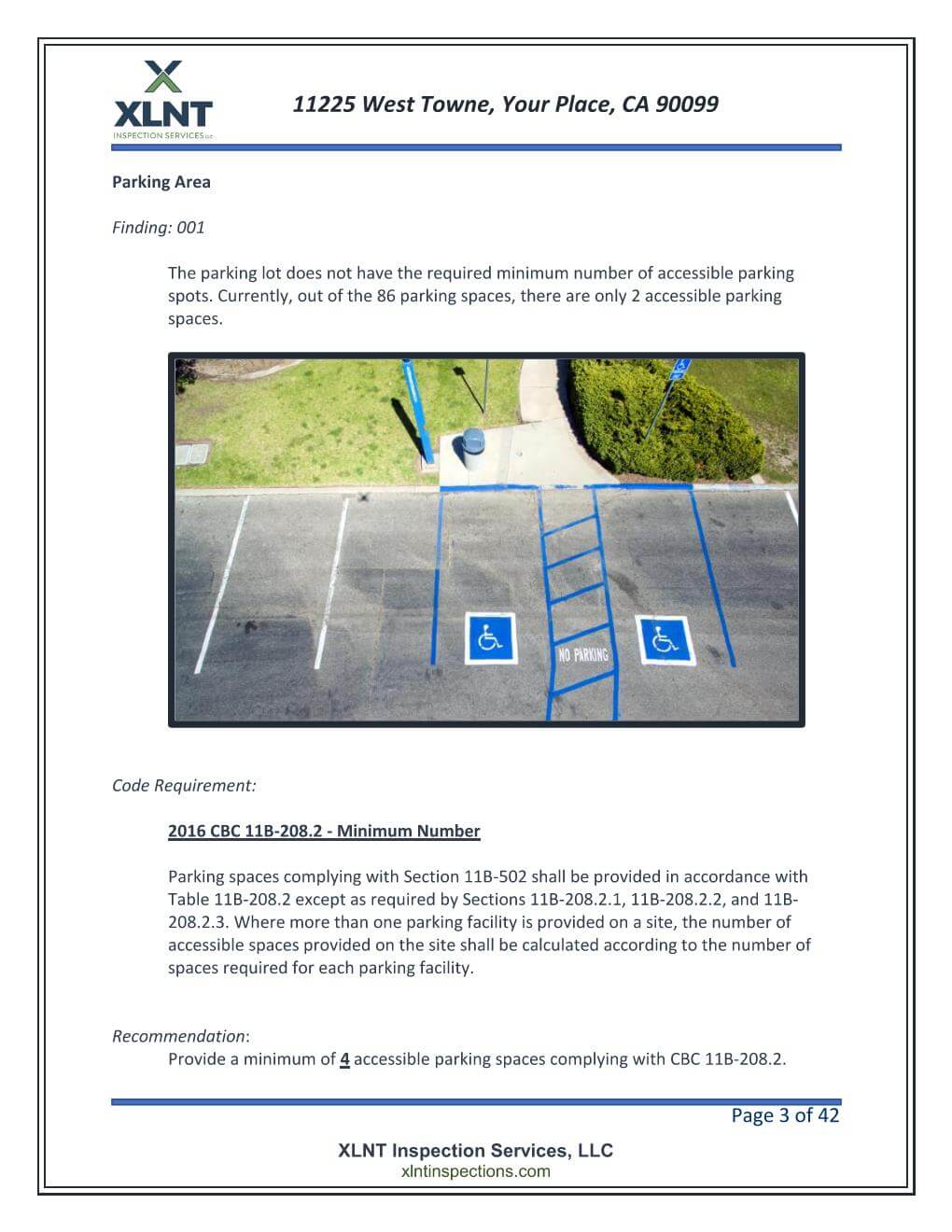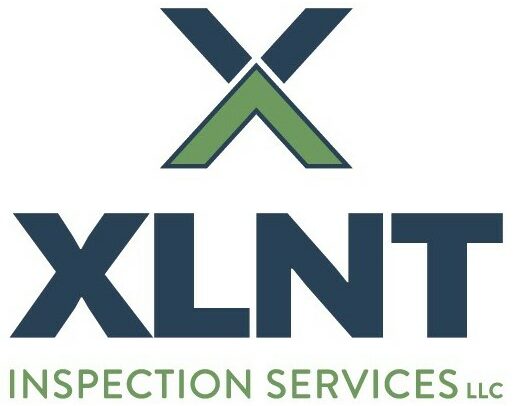ADA Inspection Process: How I Help You Achieve Compliance
Schedule your ADA / CASp inspection
Let’s Talk! Call me or email me to discuss your project and schedule a site inspection of your property or business.
Meet your ADA / CASp Inspector
Let’s Meet! I will perform your ADA Evaluation or CASp inspection and walk you through any issues I find.
Review Your Inspection Report
Let’s Review! After you receive your report we can schedule a follow-up meeting to review the findings and determine next steps.
Whether you are a small, medium, or large business owner, you should understand that having an ADA inspection of your business can help you avoid potential lawsuits or, at the very least, lessen the impact.
Operating a business in California provides terrific opportunities but also comes with risks, such as lawsuits. The good news is that the State of California passed Senate Bill No. 1608, which helps business owners by protecting them from an accessibility-related lawsuit.
Through the Division of the State Architect (DSA), the State of California has certified me to be able to perform evaluations on your property and determine if your business structure and site areas meet construction-related accessibility standards or if corrections need to be made. Having this evaluation before you are served with an accessibility-related court summons can help you with the lawsuit.
Give me a call to review your business as it relates to accessibility, and let me answer any questions you may have – at no charge!
BUILDING SITE AREAS
The first areas your clients encounter are the building site areas, such as the parking areas. I will inspect to verify that you have the correct number of accessible parking spaces.
ACCESSIBLE ROUTES
My inspection includes inspecting accessible routes, accessible doors, doorways and gates, and accessible elevators.
PLUMBING ELEMENTS
I will inspect and identify Toilet or Bathing Rooms that do not meet the ADA requirements. This will also include drinking fountains and saunas.
COMMUNICATION ELEMENTS
I will inspect and identify signs, telephones, and point-of-sale machines, such as ATMs, that do not meet the ADA requirements.
SPECIAL ROOMS AND SPACES
I will inspect and identify dressing rooms, kitchens, medical care spaces, and lodging that do not meet the ADA requirements.
BUILT-IN ELEMENTS
I will inspect and identify benches, dining surfaces, work surfaces, and service counters that do not meet the ADA requirements.
RECREATION FACILITIES
I will inspect and identify play areas, swimming pools, and public recreational areas that do not meet the ADA requirements.
LEGAL PROTECTION
Have me inspect your business and issue you a Disability Access Inspection Certificate before your are issued a court summons!
PLAN REVIEW SERVICES
Let me take a look at your plans and review the for accessibility compliance before you submit them to the city for plan check!

High-Quality Images
I will take images throughout the inspection and integrate them into my report, illustrating the issues that I may find with the property in question, providing you with a comprehensive overview of its accessibility compliance.
Step-by-Step Breakdown
My report is easy to understand. It is separated into individual sections, identifying each issue with accessibility and pairing it with the code appropriate requirement. This makes it easy for you to review and understand my findings.
Mobile-Friendly Reports
My reports can be generated for viewing on both desktop and mobile devices, ensuring that you can always view the results of your inspection, even when you’re on-the-go.

Email Delivery
I know your time is valuable so I won’t keep you waiting. Depending on the size of your commercial property, your report will be delivered between 3 to 7 business days.
Follow-up Support
Once we have delivered your report, you or your agent are welcome to call us at anytime for additional support or questions to help you decide on the next steps.
Frequently Asked Questions
WHAT IS A CASP/ADA INSPECTION?
A CASP/ADA inspection refers to a comprehensive assessment of a building’s compliance with the California Accessibility Standards Program (CASP) and the Americans with Disabilities Act (ADA). It involves evaluating the accessibility features and identifying any barriers that may prevent individuals with disabilities from accessing the premises.
What is the ADA and how does it apply to my business or facility?
The Americans with Disabilities Act of 1990 (ADA) is a federal civil rights law that prohibits discrimination of individuals with disabilities and requires all facilities used by the public (public accommodations) to be accessible to individuals with disabilities. Since January 26, 1992, all new construction, additions and alterations are required to comply with the ADA standards. The ADA contains no “grandfathering” provisions. The “applicable construction-related accessibility standards” are based on the age of the facility and/or date of renovation(s):
Facilities Built/Renovated Before January 26, 1992 Places of public accommodation constructed before this date are required to remove barriers if it is “readily achievable to do so” — a CASp can help make this determination.
Facilities Built/Renovated Between January 26, 1992 and March 14, 2012 Places of public accommodation built during this time are required to be in compliance with the 1991 Americans with Disabilities Act Standards (1991 ADAS).
Facilities Built/Renovated on or after March 15, 2012 Places of public accommodation and commercial facilities built after this time must be built in compliance with the 2010 Americans with Disabilities Act Standards (2010 ADAS).
In addition, accessible features are required to be maintained at your facility. Failure to come into compliance or maintain compliance leaves you vulnerable to having a discrimination claim filed against you by an individual that is denied access to your business or facility due to physical access barriers.
If my facility isn’t compliant with the current building code, does that mean I have a violation?
While the building code may change periodically, these changes do not cause a facility to become noncompliant with the new regulations. Facilities must comply with both federal and state accessibility standards; however, the current version of the state accessibility standards is not necessarily applicable to your existing facility. A CASp will know, based on its age and history of improvements, which version of the building code is applicable for determining compliance of your facility.
What should I look for in a CASp inspection report?
A CASp inspection report prepared according to the Construction-Related Accessibility Standards Compliance Act (CRASCA, Civil Code §55.51-55.545) must have specific required content in order to offer a “qualified defendant” status. The report should state that the site either “meets applicable standards” or “inspected by a CASp.

With a CASp inspection, completed according to CRASCA (see “What should I look for in a CASp Inspection?”), you are considered “qualified defendant.” As a “qualified defendant” statutory damages may be reduced to a minimum of $1,000 for each occasion (visit) by the plaintiff if you can demonstrate that all construction-related violations that are the basis of a claim were corrected within 60 days of being served with the complaint.
In addition, qualifying small businesses that receive a CASp inspection, completed according to CRASCA, may opt for a 120-day grace period during which they are free from liability from statutory damages of those violations identified in the CASp report if they are corrected within this 120-day time period.
Without a CASp inspection, statutory damages of $4,000 may be assessed per occasion under Civil Code section 55.56; not $4,000 per each violation as previously allowed under the Unruh Act (Civil Code §52(a)).
A person is denied full and equal access if the individual personally encountered the violation or the individual was deterred from accessing a place of public accommodation. A denial of full and equal access includes instances where a person experienced difficulty, discomfort, or embarrassment because of the violation.
If you are found liable, you will be responsible for paying the plaintiff’s attorneys fees in addition to statutory damages.